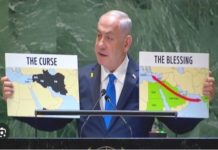Dahlia Scheindlin
Jul 15, 2025
Israel’s recently unveiled plan – to force 600,000 displaced Palestinians into a ‘humanitarian city’ to be established on a strip of land where Rafah once stood – raises critical, and chilling, questions about the Netanyahu government’s intentions for Gaza
Israel’s plan for a “humanitarian city” in southern Gaza was announced by Defense Minister Israel Katz last week.Credit: Adike/Shutterstock; Google Maps; Anastasia Shub
What do you need to know about Israel’s plan to herd 600,000 Palestinians into a special camp at Gaza’s southern border with Egypt, which the Netanyahu government calls a “humanitarian city”?
At first glance – not much more than what you just read. The only natural response, based on international law and human decency, is “no.” The plan, announced by Defense Minister Israel Katz last week, would force 600,000 people into a strip of land where Rafah once stood, then lock them in or allow one-way emigration abroad, with more Gazans to follow. It’s forced displacement on pain of death or starvation, as a prelude to expulsion.
Katz’s proposal was also rapidly endorsed by Israeli Prime Minister Benjamin Netanyahu, who instructed the IDF to draw up plans for implementation.
In fact, the idea reveals a list of insights about the Israeli government’s intentions for Gaza – and its vision for the future of the country.
The black list
First, this is not a drill or a gimmick. Israel’s defense minister announced the “humanitarian city” policy in a media briefing; it wasn’t a leak or a rumor. When IDF Chief of Staff Eyal Zamir presented a proposal for how the army would establish such a “city” to senior ministers and security officials on Sunday, Netanyahu demanded a new plan – this was too expensive – and not fast enough.
The first insight feeds into a second, more general point: Israel’s current government, established in December 2022, is the most transparent and explicit government since 1967 regarding its plans for Palestinians and their territories.
Right there in the December 2022 coalition agreements between Likud and Religious Zionism, signed by representatives of each party on each page, the text establishes that “the prime minister will lead the planning and advancement of a policy framework for applying sovereignty in Judea and Samaria…” (using the biblical terms for the West Bank).
This line was one of two dozen items stipulating how to implement de facto West Bank annexation; the government has worked energetically to fulfill those items. After October 7, it took no time for ministers in this government (including from the ruling Likud party) to begin either calling to establish a permanent military government, or to join public conferences advocating to expel Palestinians and re-establish settlements in Gaza. We may not know what will happen with Gaza, but in terms of what this government wants – just listen.
Thirdly, the government may be explicit but also launders words, i.e., lies; such as the defense minister and others referring to Rafah plan as a “humanitarian city.” There is nothing humanitarian about it.
But if you know insight #2 (just listen), the lie hardly matters, because the government has been so clear about its aims for the people of Gaza. Katz has already established a “voluntary migration authority,” which is functioning and searching for countries willing to accept masses of Palestinian emigrants (so far with almost no success).
Netanyahu and the government have repeatedly advocated ridding Gaza of Palestinians, slapping on the word “voluntary” for no real reason. Their actions speak far louder – every day in Gaza, the army is mowing down scores of civilians, including women and children at food aid and now even water distribution centers. The body count of these massacres is staggering, with about 140 killed over 24 hours this past weekend.
From early March, the IDF implemented a complete siege on fuel and other supplies, which are now “trickling” in but remain barely accessible – due to either to poor distribution of insufficient supplies, or death. Being forced into a prison in order to get food and water to survive is not “humanitarian” by any definition.
Fourth, this is a war crime. Sixteen top Israeli scholars of international law published an open letter to Katz and the IDF Chief of Staff, copying Attorney General Gali Baharav-Miara, her deputy, and ministerial legal advisors. The four-page letter provided detailed “unambiguous” legal arguments that demonstrate why the plan represents a “manifestly illegal order” which soldiers must refuse to obey, according to the Israeli “black flag” legal doctrine dating back to the 1950s.
It gets worse. “Executing this plan … would represent a list of war crimes, crimes against humanity, and under certain conditions, it might fall under the rubric of the crime of genocide.”
Fifth, extreme potential criminal culpability is not the only legal problem with the plan. Noa Shusterman Dvir, head of the Palestinian program at MIND Israel, a security strategy think tank, noted in an interview that the Rafah camp could call into question Israel’s own High Court ruling from earlier this year that Israel is not an occupying power in Gaza.
And if Israel is formally an occupying power, theoretically it must take responsibility for all civilian and humanitarian affairs in Gaza.
Sixth, is it even remotely feasible? Shusterman Dvir also addressed the notion of “de-radicalization camps,” which are also being bandied about and has a chilling resemblance to “re-education” camps. Will Israel really impose educational, religious and cultural content too? Or will it simply leave people to fester without frameworks in the zone where they are not allowed to leave except to emigrate, while those who remain turn to gangs, crime and chaos?
Michael Milshtein, a former military intelligence expert on Palestinian affairs who now heads Palestinian studies at the Moshe Dayan Center at Tel Aviv University, warned darkly that the plan isn’t feasible – at least not without grave consequences. “I know that area between the Philadelphi corridor and Morag, from Rafah to the sea,” he said, referring to the zone where the “supercamp” that some analysts predicted early in the war would be established.
“I served there. You cannot put 600,000–700,000 people there, you just can’t fit them in. And then, consider that you have no civilian infrastructure – not just homes, but no water lines, no electricity, nothing.”
Seventh, since he mentioned the Egyptian border, the plan is another blow to the Egyptians, who have been signaling that Israel is “building a threat on our border,” said Milshtein. And the war has strained relations badly already with Israel’s biggest and oldest Arab ally.
Eighth, let’s talk about Holocaust imagery. Many Israelis are outraged that other Israelis dared to call Katz’ “humanitarian city” a concentration camp. It’s not just Haaretz doing it: These Israelis include former prime minister Ehud Olmert, who said in an interview with The Guardian: “If they [Palestinians] will be deported into the new ‘humanitarian city,’ then you can say that this is part of an ethnic cleansing.”
But what can you call it, when authorities try to stuff 600,000 people into an area that can’t hold them, force them there through threat of death, into tents with no infrastructure and forbid them from leaving?
Mainstream media outlets in Israel found it impossible to describe the plan without using terms like “thinning out” (referring to the effort to reduce the number of Palestinians now in the southwestern al-Muwasi area) by transferring or “concentrating” them in the Rafah zone. Those who don’t want to hear about the Holocaust would be so much more effective if they actually protested the policies that inevitably bring these images, terminology and policy to mind.
Ninth, where is all this leading? In one scenario, maybe the Rafah camp idea won’t happen. The army is dragging its feet, in part because it’s not at all clear that Israel will stay in the area allocated for that zone. Redeploying from the Morag line is a key item in the cease-fire negotiations with Hamas. But those talks look increasingly barren, despite higher than usual anticipation.
In another scenario, nothing stops the madmen. Milshtein is deeply concerned that the path towards the Rafah camp ends with re-establishing a military government in Gaza, just as religious fundamentalist minister Bezalel Smotrich has promised from the start.
The tenth point is not an insight, it’s a personal conclusion. In keeping with the government’s preference for religious themes, the people of Israel might want to consider that committing the plagues is as bad, or worse, than suffering from them.
We remind our readers that publication of articles on our site does not mean that we agree with what is written. Our policy is to publish anything which we consider of interest, so as to assist our readers in forming their opinions. Sometimes we even publish articles with which we totally disagree, since we believe it is important for our readers to be informed on as wide a spectrum of views as possible.











